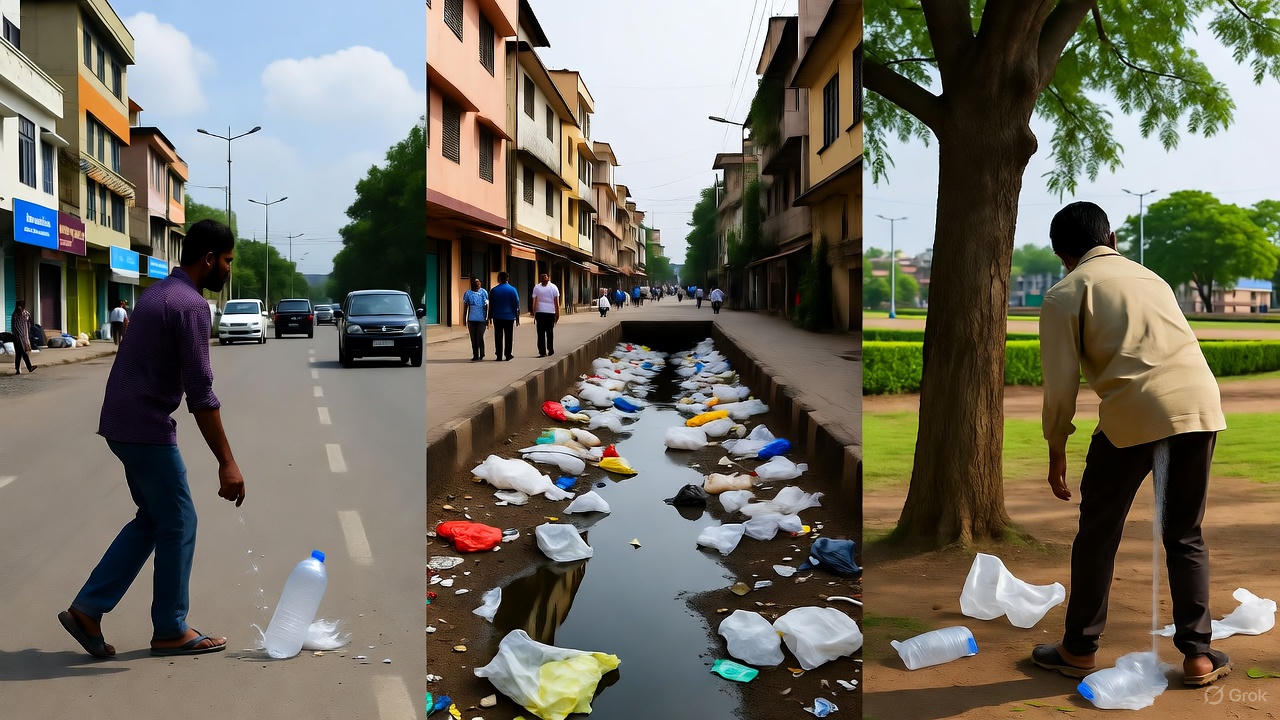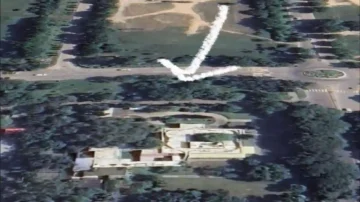
NEW DELHI: As India strides confidently towards its ambitious goal of becoming a developed nation, boasting rapid infrastructure growth, technological progress, and a growing economy, a critical question looms large: can a country truly call itself “developed” if its citizens continue to fall short on basic civic sense?
While we talk about becoming a developed nation, we fight over language, and we litter on clean infrastructure.
Recent incidents, from gutka-stained metro stations to defaced heritage sites, are stark reminders that true progress isn’t just about building roads, towers, or technology. It’s about the mindset of the people who use them. Development, after all, isn’t only measured in GDP or high-speed trains, but in how responsibly citizens treat their shared spaces.
The dream of a “Viksit Bharat” envisions not just skyscrapers and bullet trains, but a society where everyone lives with dignity, free from poverty, and guided by civic responsibility. Yet, this vision faces a major roadblock, the lack of civic sense. A nation is only as strong as its people, and when citizens lack discipline, ownership, and respect for public good, even the most ambitious projects lose their shine.
Read More: Why Chabahar Port Matters: India’s 10-Year Deal with Iran and the Road to Eurasia
Take the example of the Patna Metro. Barely three days after its grand inauguration, photos and videos flooded social media, not celebrating the new transport system, but showing its walls and platforms stained red with paan and gutka. What should have been a symbol of modern India turned into a reflection of carelessness. The outrage online summed up one common frustration: how can we aim for world-class infrastructure if we can’t maintain basic cleanliness?
Sadly, this is not an isolated case. The story repeats across India. Sairang Railway Station in Mizoram was found covered in litter just 24 hours after opening. Coaches of the Vande Bharat Express, once hailed as a symbol of India’s railway revolution, often end up with scratched seats and broken fittings. Each incident reflects not only a financial loss, but also a moral one, a failure of public responsibility.
The problem goes beyond litter or vandalism. It extends to how we treat our heritage and culture. The recent defacement of Humayun’s Tomb by visitors scratching names onto its centuries-old walls shows how deeply this problem runs. These acts show not only disrespect for history, but also disregard for future generations who deserve to witness these sites unspoiled.
Even in daily life, the absence of civic sense is visible everywhere, from reckless driving and honking to people throwing garbage out of cars or skipping queues. A recent debate online, sparked by a foreign tourist’s post about Indian public manners, reignited the conversation: can a country truly progress if it ignores the basics of discipline and respect?
A developed country isn’t defined only by its economy or military power. It’s defined by the mindset of its people, citizens who value cleanliness, respect public spaces, and act with a sense of shared responsibility. True progress begins when individuals, men and women alike, take ownership of their surroundings and contribute to building a more responsible society.
If India truly wants to join the ranks of developed nations, it must go beyond numbers and growth charts and focus on cultivating civic consciousness. Education, awareness, and strict enforcement are key, but real change begins when every citizen sees public property as their own and understands that civic discipline is not optional, it’s essential.
Until that happens, India’s dream of becoming a developed nation will remain incomplete, a promise half-fulfilled. Because development is not just about building a stronger country, but about building better citizens.

















